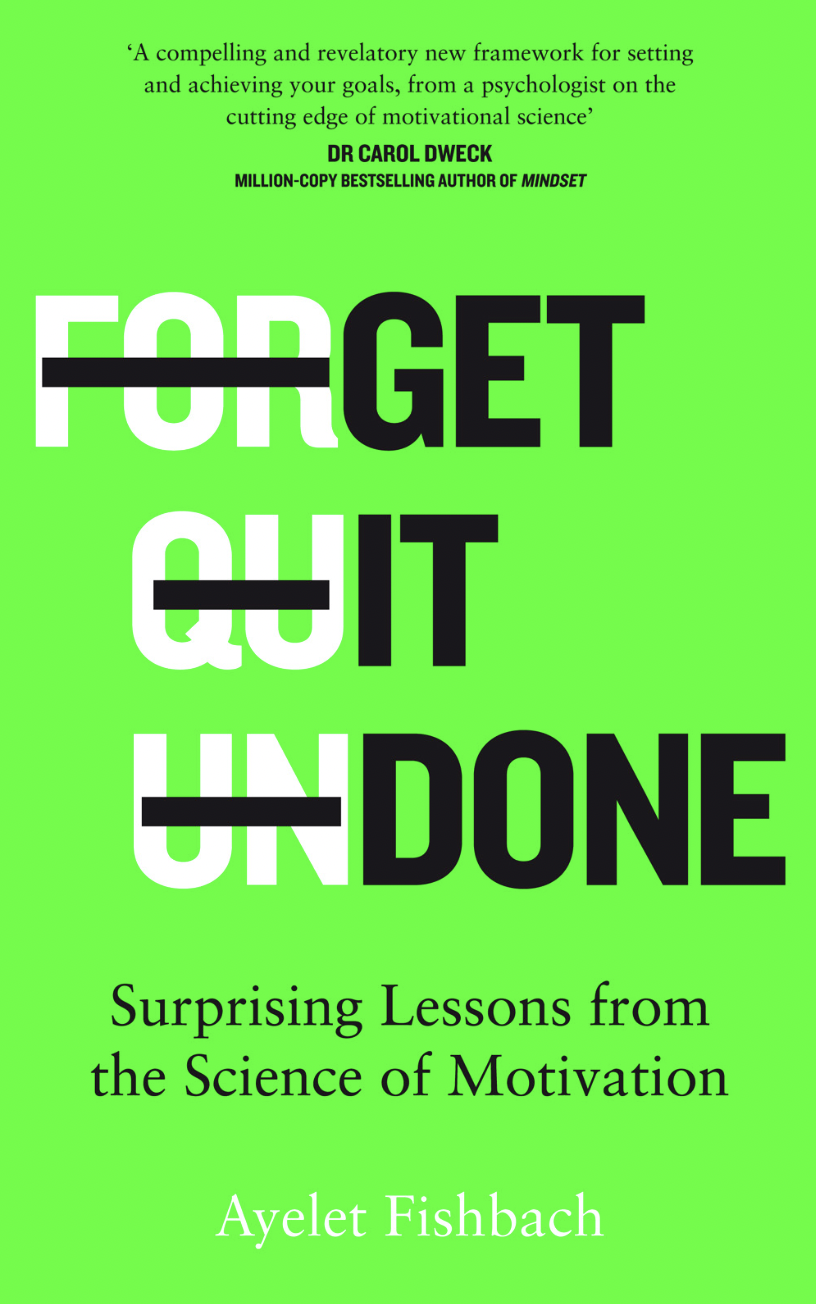Set goals, stay motivated & what to do IF you achieve the goals
It is not enough to set just about any goal. If the goals seem impossible to achieve (or too easy), they don't motivate us. So what is the right approach to goal setting? I just finished reading a fabulous book called Get It Done by Ayelet Fishbach. Her book is all about what motivates us to achieve our goals.
Being intrinsically motivated to do something, plays a vital role in your success. When you do something without being asked to, you are self-motivated.
Reframing a chore can turn it to something motivating. When I had to take a 90 minute commute each way to work, I reframed it as my time to listen to music. Turning work into play can be a powerful way to stay motivated in a job that you do not enjoy.
Goal Setting
We often set goals without thinking about the resources that it will need. People buy books without thinking of the time they will have to spend reading it. Organizations assign goals to individuals without thinking of the time, people, attrition, hiring challenges or changing priorities.
Achieving a goal is exciting; completing the means is a chore. We may feel excited about joining an employer, but the daily commute is a chore. ask yourself if your goal is an approach goal or an avoidance goal. An DO goal is what you SHOULD approach (eg pay your credit card bill fully). An DO NOT DO goal is what you should avoid (eg avoid credit card debt). Approach goals are more effective because they make you think about WHY you are doing it. An avoidance goal is more motivating in the short run to stay focused.
Pro tip: WHY you want to do something is more motivating than HOW you will do something.
Timing matters when you get started
Your birthday, a new job, a new role... just about anything that seems like a new beginning gives us permission to leave the old self behind and build a new version of ourself. When a new hire steps in, it is a "fresh start" for an organisation to change things. A new CEO should use the opportunity to create new rituals and habits.
Read: Why top performers are likely to underperform with a new boss
Three actionable ideas
Too many incentives kill motivation: Too many cooks spoil the broth. More importantly, too many incentives spoil the motivation. Rewarding the wrong behaviour can create a problem. Many startups have realised that when they withdraw the freebies during a funding crunch leads to unhappy employees. When work from home was a discretionary decision, getting it was a big deal.
People work harder if the end is visible When you start a project, looking back to the early days can motivate you because you can see the progress made. When you are near the end of the project or a task, a count down is very motivating.
Making progress is motivating: Have you ever got a promotion and wondered immediately if it was not as big a deal that you made it out to be? That is because making progress towards a goal is more rewarding than achieving the goal itself. Given that we are all likely to live to be 100, becoming the CEO by age 25 may actually make you miserable. What will you do for the next 75 years?
I loved the book and recommend that you read it too. One thing that you must look out for is the entire chapter on how to give feedback. There is an entire section on how to manage multiple goals. And my favourite section, how the presence (or absence) of others changes how we succeed or fail.
Contrary to all those motivating talks about failing, we do not actually learn from failures.
But there is much more in her book. So buy it and I guarantee you will find plenty of stuff you can implement in your life.
You can download a free copy of the sketchnote that summarises my key take aways. <click here>
This newsletter is a labour of love. If you enjoyed the cartoons, videos and review, please like, share, comment and subscribe to this newsletter. Thanks - that means so much to me
<To subscribe to this newsletter, click this>
Email me at abhijitbhaduri@live.com if you want a high resolution pdf. It is free for you to use and distribute.








